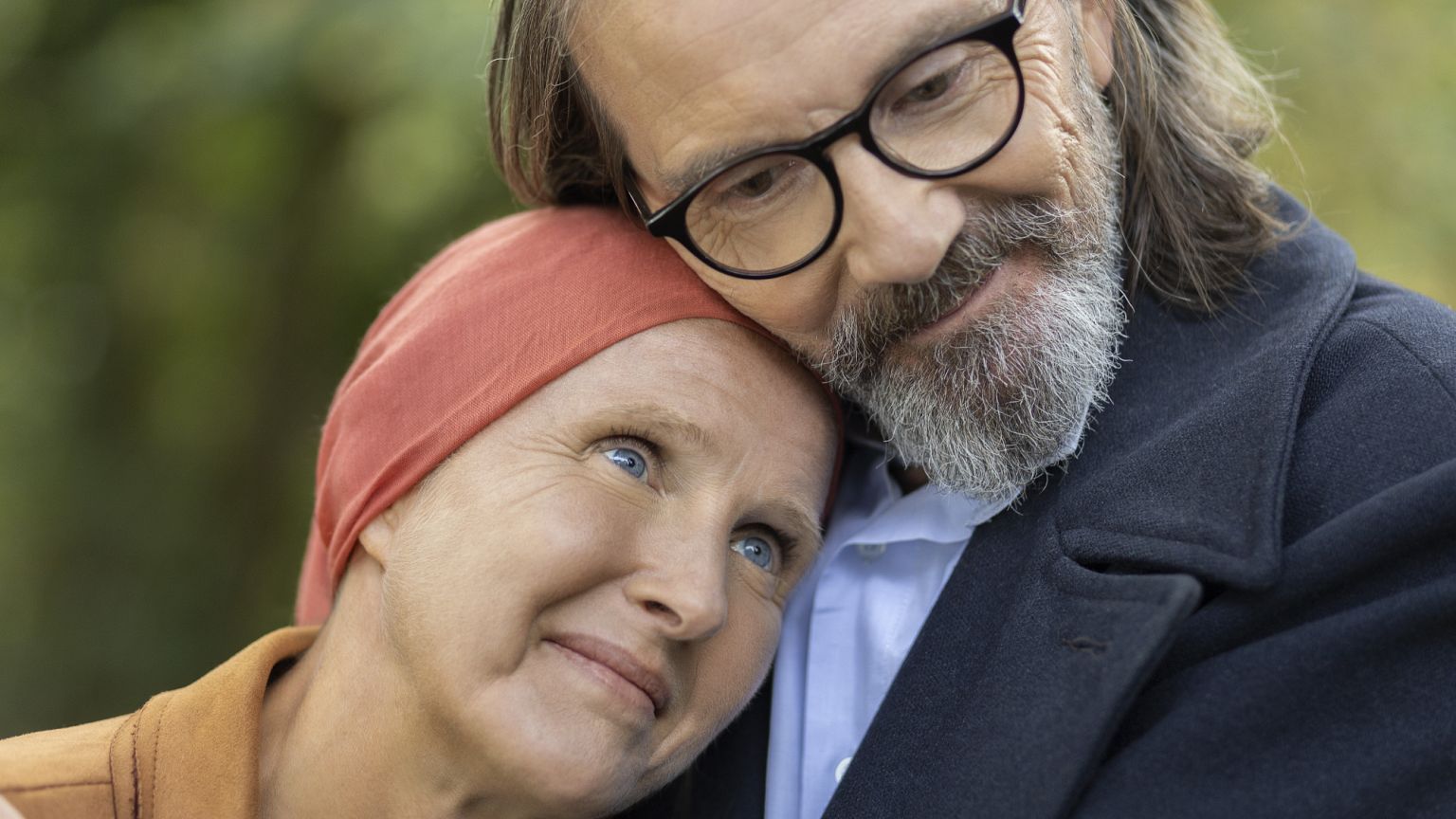 Muhamad Yehia.. Cairo
Muhamad Yehia.. Cairo
A cancer diagnosis is a life-changing event for both the patient and their loved ones. In a matter of days people go from husband and wife, or parent and child, to patient and caregiver. In Europe 80% of long-term care is delivered by informal caregivers, with millions of Europeans looking after the 4.5 million people who are diagnosed with cancer in Europe every year.
Cancer caregivers and nutrition
New research conducted by Ipsos among informal cancer caregivers in Spain, Poland, France and Germany¹ showed that 93% of caregivers worry about the weight and muscle loss they notice in their loved ones.
As the people closest to a patient with cancer, caregivers are often the first ones to notice eating problems. In fact, almost all caregivers (98%) report observing at least one eating problem like appetite loss or nausea in their loved ones. Such problems are caused by the disease itself and its treatment, increasing the risk of weight and muscle loss and becoming malnourished.
A cancer diagnosis is a life-changing event for both the patient and their loved ones. In a matter of days people go from husband and wife, or parent and child, to patient and caregiver. In Europe 80% of long-term care is delivered by informal caregivers, with millions of Europeans looking after the 4.5 million people who are diagnosed with cancer in Europe every year.
Cancer caregivers and nutrition
New research conducted by Ipsos among informal cancer caregivers in Spain, Poland, France and Germany¹ showed that 93% of caregivers worry about the weight and muscle loss they notice in their loved ones.
As the people closest to a patient with cancer, caregivers are often the first ones to notice eating problems. In fact, almost all caregivers (98%) report observing at least one eating problem like appetite loss or nausea in their loved ones. Such problems are caused by the disease itself and its treatment, increasing the risk of weight and muscle loss and becoming malnourished.
Malnutrition in cancer
Caregivers are right to worry about the weight loss they notice in their loved ones. It is a visible sign of cancer-related malnutrition which affects up to 80% of patients with cancer². Malnutrition negatively impacts their cancer treatment and recovery outcomes, resulting in more complications, a higher risk of infections, longer hospital stays, and increased mortality.
Beyond its grave impact on the lives of patients and caregivers, the systemic burden of malnutrition in cancer is immense, adding up to an estimated extra €120 billion in cancer treatment costs across Europe³.
Despite its prevalence and associated adverse effects, cancer-related malnutrition remains widely underrecognized. Systematic screening for malnutrition is not always integrated in cancer care and solutions like medical nutrition are not known to patients and caregivers, nor are they an integral part of cancer policies or care pathways.
Medical nutrition as an integral part of cancer care
At Danone we are convinced medical nutrition is fundamental in addressing cancer-related malnutrition, an issue that affects the majority of patients with cancer. Prescribed by a healthcare professional, medical nutrition is clinically proven to contribute to maintenance of weight and muscle mass compared to no intervention⁴, fewer post-op complications⁵, improved tolerance to treatment⁶, shorter length of hospital stay⁷, and higher patient quality of life⁸. As such it can also help to relieve some of the fundamental concerns tabled by caregivers in the recent research.
Yet at present, only 1 out of 3 patients with cancer who need medical nutrition actually receive it⁹. This in part is due to a lack of awareness of the role of nutrition in cancer care, but also because weight loss is often seen as inevitable when going through the disease.
Calling for action
All patients and caregivers deserve the best chance in their fight against cancer. Solutions that address malnutrition can support them in this fight which is why everyone who needs medical nutrition should have access to it. Holistic approaches in cancer care as part of which patients are systematically screened for malnutrition and provided medical nutrition, are more necessary than ever and Danone calls for these to become an integral part of Europe’s Beating Cancer Plan, National Cancer Control Plans as well as cancer care pathways and protocols everywhere.
![]() ‘Partner Content presented by’ is used to describe brand content that is paid for and controlled by the advertiser rather than the Euronews editorial team. This content is produced by commercial departments and does not involve Euronews editorial staff or news journalists. The funding partner has control of the topics, content and final approval in collaboration with Euronews’ commercial production department.
‘Partner Content presented by’ is used to describe brand content that is paid for and controlled by the advertiser rather than the Euronews editorial team. This content is produced by commercial departments and does not involve Euronews editorial staff or news journalists. The funding partner has control of the topics, content and final approval in collaboration with Euronews’ commercial production department.
Caregivers are right to worry about the weight loss they notice in their loved ones. It is a visible sign of cancer-related malnutrition which affects up to 80% of patients with cancer². Malnutrition negatively impacts their cancer treatment and recovery outcomes, resulting in more complications, a higher risk of infections, longer hospital stays, and increased mortality.
Beyond its grave impact on the lives of patients and caregivers, the systemic burden of malnutrition in cancer is immense, adding up to an estimated extra €120 billion in cancer treatment costs across Europe³.
Despite its prevalence and associated adverse effects, cancer-related malnutrition remains widely underrecognized. Systematic screening for malnutrition is not always integrated in cancer care and solutions like medical nutrition are not known to patients and caregivers, nor are they an integral part of cancer policies or care pathways.
Medical nutrition as an integral part of cancer care
At Danone we are convinced medical nutrition is fundamental in addressing cancer-related malnutrition, an issue that affects the majority of patients with cancer. Prescribed by a healthcare professional, medical nutrition is clinically proven to contribute to maintenance of weight and muscle mass compared to no intervention⁴, fewer post-op complications⁵, improved tolerance to treatment⁶, shorter length of hospital stay⁷, and higher patient quality of life⁸. As such it can also help to relieve some of the fundamental concerns tabled by caregivers in the recent research.
Yet at present, only 1 out of 3 patients with cancer who need medical nutrition actually receive it⁹. This in part is due to a lack of awareness of the role of nutrition in cancer care, but also because weight loss is often seen as inevitable when going through the disease.
Calling for action
All patients and caregivers deserve the best chance in their fight against cancer. Solutions that address malnutrition can support them in this fight which is why everyone who needs medical nutrition should have access to it. Holistic approaches in cancer care as part of which patients are systematically screened for malnutrition and provided medical nutrition, are more necessary than ever and Danone calls for these to become an integral part of Europe’s Beating Cancer Plan, National Cancer Control Plans as well as cancer care pathways and protocols everywher
 موقع وجه أفريقيا موقع وجه أفريقيا هو موقع مهتم بمتابعة التطورات في القارة الأفريقية
موقع وجه أفريقيا موقع وجه أفريقيا هو موقع مهتم بمتابعة التطورات في القارة الأفريقية


